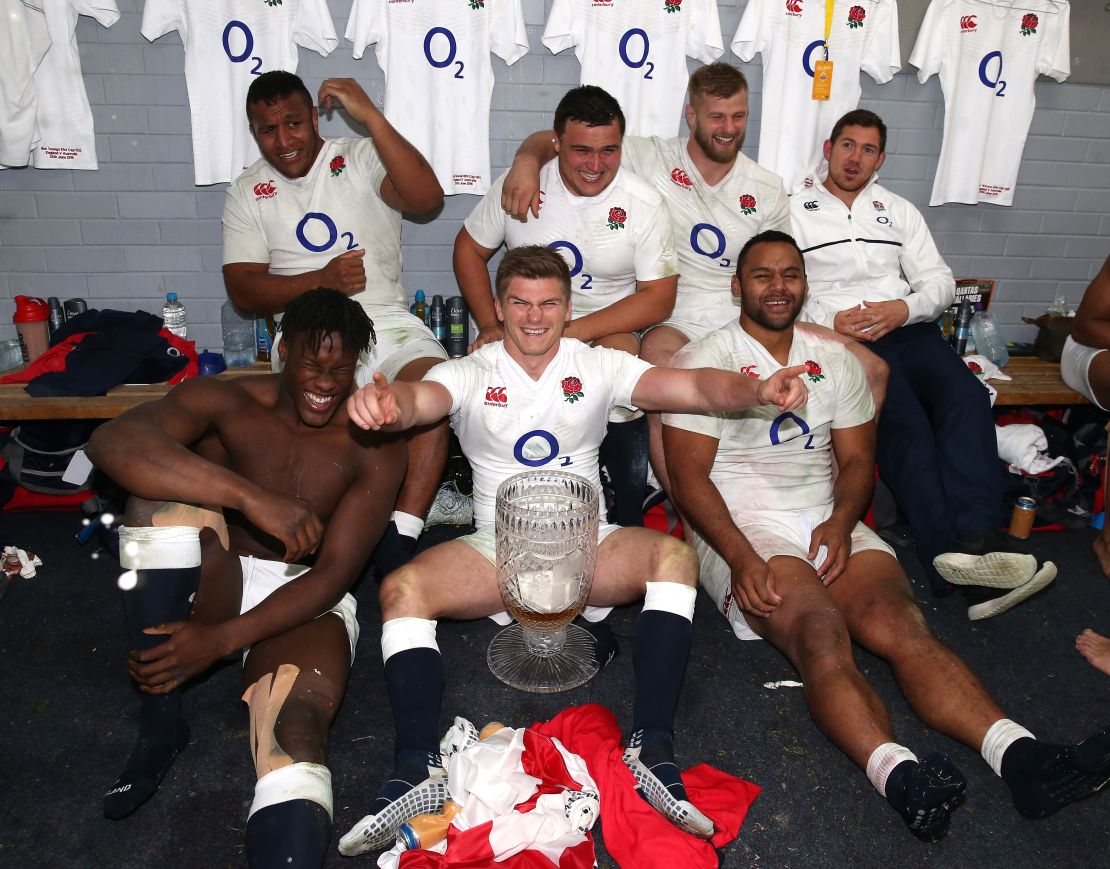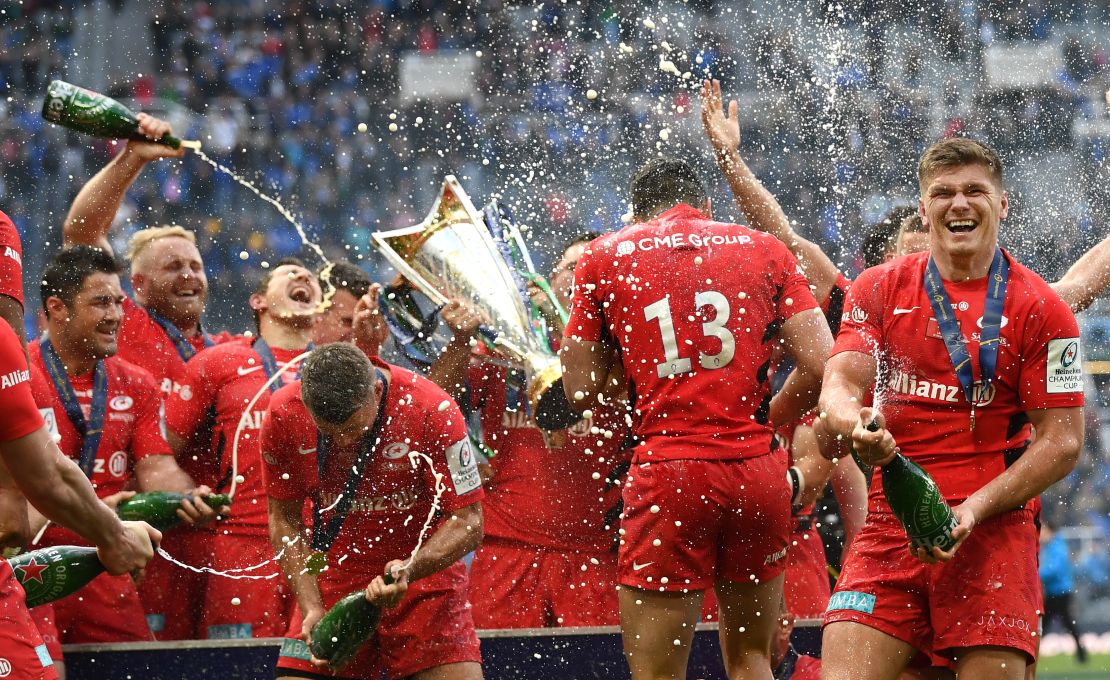For a reigning champion to be relegated the following season something must have gone seriously wrong.
Saracens – a team with a recent record of success akin to the New England Patriots – haven’t played badly though.
They actually have the joint best record in rugby union’s English Premiership this season.
So why have they been relegated? Quite simply, they haven’t been playing by the rules – but not the rules on the pitch.
Earlier this season, the reigning Premiership champions were found to have breached the league-wide salary cap for the previous three seasons.
The punishment was a 35-point deduction for the current campaign and a £5.4m ($7m) fine.
The current Salary Cap is £7 million, but clubs are allowed two Excluded Players whose salaries sit outside the cap. This allows club to recruit and retain world-class talent.

The league’s governing body, Premiership Rugby, confirmed this weekend though that Saracens would be relegated to the Championship, English rugby’s second division, in addition to their previous sanctions.
Saracens said they “accept” the relegation and “apologise for the mistakes made”.
The club added: “Our goal is to rebuild confidence and trust. We have accepted the unprecedented measures of automatic relegation from the Premiership at the end of the 2019-20 season.
“The board must embody the values of the club, learn from its mistakes so the club can come back stronger.
“It is in the wider interests of the Premiership and English rugby to take this decisive step, to ensure everybody is able once again to focus on the game of rugby, which we all love.”

Premiership Rugby introduced the salary cap in 1999 to ensure the financial security of all clubs and a level-playing field across the league.
In the past five years, Saracens have dominated domestically and in Europe, winning four Premiership titles and have won Europe’s Champions Cup three times.
Victory against France’s Racing 92 put them through to the quarter-finals of this year’s European competition. Victory in the competition would usually guarantee a spot in the following season’s edition, but even if they take the crown again this year, they will be barred from the competition owing to the club’s relegation.
The fallout
The club’s success in recent years has only added fuel to the acrimony felt by other clubs.
Exeter Chiefs lost to Saracens in the final of the Premiership in three of the past four seasons, and their chief executive Tony Rowe has not held back on his criticism of Saracens.
“They’ve taken relegation,” Rowe told the BBC. “Let’s be very honest before people have sympathy with Saracens.
“They had two choices: they could either open up their books so that Premiership Rugby could do a forensic audit of exactly what has gone on, or they could take relegation. So it was their choice not to open up their books.
“Premiership Rugby - all the chairmen - we just want to move on. It was their opportunity to open up everything to the salary cap people, or take relegation. They have decided to take relegation.”

He continued: “We just want to move on. They have cheated. And I’m just a bit upset it has taken so long to do this. At the moment, they are still picking their team each week largely from the squad they had last year which is still in breach of the salary cap. They have been asked by the rest of the Premiership clubs to reduce that (the squad) back as well.
“Everybody has had their suspicions for a long time. Five years ago they were hauled over the coals for similar offences. We just want a level playing field. Every club just wants the same opportunity and chances and let’s hope we get back to that.”
Rowe also said he wasn’t sure whether Saracens should be allowed to keep their titles, teasing “there is still more to come out and I’m not privy to talk about that at the moment”.
The future
After relegation was confirmed, the club’s director of rugby Mark McCall has said the squad will be broken up at the end of the season, saying: “There’s no doubt the bunch of players we’ve got in our squad now aren’t going to be the same bunch of players we have in the Championship next year.
“We have got some time to plan for a new era, a new journey, and that is the optimistic way of looking at it.”
The Saracens squad is littered with international rugby stars like England captain Owen Farrell, Maro Itoje and Billy Vunipola. The club is still unsure whether it can retain these big-name players in the Championship.
Players may look for loan moves or permanent moves to other teams to stay in the Premiership and continue their international careers.
READ: New Zealand rugby star Williams joins Ozil in speaking out against China’s Xinjiang camps

Championship players are eligible for England duty, but McCall has said Saracens will speak to England head coach Eddie Jones about what he wants for his players.
“We’ll also have to talk to Eddie Jones and see what he thinks, in terms of his established players from Saracens and the younger ones - is he prepared for people to be playing in the Championship?”
McCall added: “It’s important that we make decisions with the players, not for them.
“Keeping the players against their will is never going to work, we need to see how the meetings go next week and see where some players’ thoughts are.”
As for Saracens itself, under current regulations, the club would be ineligible to return to the Premiership if they were promoted from the Championship next season.
While there is no salary cap in the Championship, a promoted club must prove they have been compliant with the Premiership’s salary cap for the previous two seasons – something that Saracens haven’t been.
Whether the rules are changed to accommodate a swift Saracens’ return remains to be seen.



